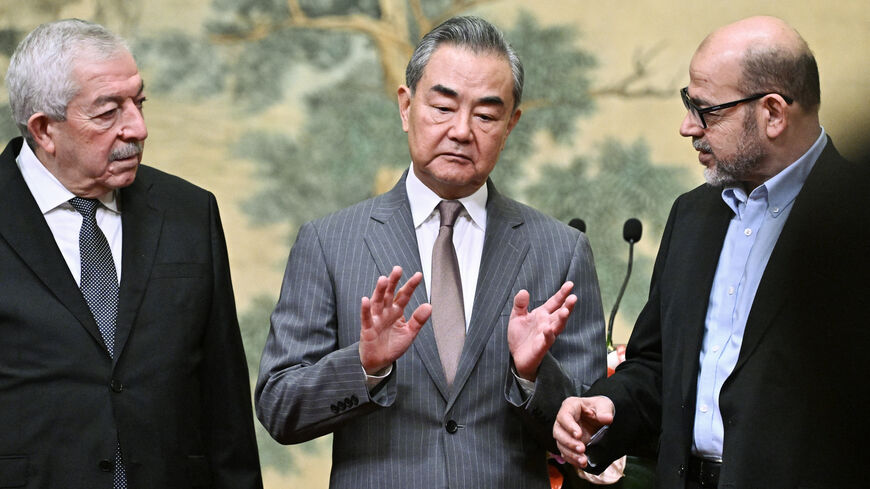In the early 1990s, following the dissolution of the Soviet Union and the end of the Cold War, the United States emerged as the sole global superpower. Bernie Sanders, who was a member of the US House of Representatives at the time, aptly described the situation in a speech on the House floor.
“We are spending $270 billion a year on the military, but we do not have a major enemy. I know it hurts your feelings. I know you are upset about it. I know you are hoping and praying that maybe we will have another war, that maybe somebody will rise up, but it ain’t happening. The Soviet Union does not exist. The Warsaw Pact is through. Who are you worried about? Iraq? Panama? Who are you worried about?” (House Congressional Record, 1992)
Since Bernie Sanders’ speech on the floor of the US House, the military budget and defense contractors’ value have skyrocketed. Although the US has gone two decades without any serious threat to its global hegemony, companies like Northrop Grumman, Lockheed Martin, Raytheon, and Boeing have experienced significant increases in their market valuations. This surge in value has directly benefited members of Congress, with six individuals from the current House’s Armed Services Committee engaging in stock trading involving these military contractors over the past three years. Even Ro Khanna, a prominent figure in the Progressive Caucus, has traded stocks from all four of these defense contractors and is known as one of the most active stock traders in Congress. Collectively, members of the House’s Armed Services Committee have received $4.4 million in financial contributions from defense contractors, both individually and through political action committees (PACs) in the 2022 midterms.
Lockheed Martin’s chief operating officer, Frank St. John, told the Financial Times that they were “going to be ramping [up] production on F-16s in Greenville [South Carolina to get to the place where we [Lockheed Martin] will be able to backfill pretty capably any countries that choose to do third-party transfers to help with the current conflict [defending the Kiev regime of the Ukraine from the Russian Military Operation].” Like all corporations, Lockheed Martin’s profits must increase, year over year. It is their fiduciary responsibility to Lockheed Martin shareholders to operate the corporation for the exclusive purpose of providing profits.
Even before the start of the Second Iraqi War, known as Operation Freedom, multinational corporations in the oil industry had discussions to divide the spoils of Iraqi oil. Ahmed Chalabi, the leader of the Iraqi National Congress, expressed his intention to reward the US by granting lucrative oil contracts to American companies if Saddam Hussein were removed from power. CIA director James Woolsey made it clear:
“It’s pretty straightforward, France and Russia have oil companies and interests in Iraq. They should be told that if they are of assistance in moving Iraq toward decent government, we’ll do the best we can to ensure that the new government and American companies work closely with them…. If they throw in their lot with Saddam, it will be difficult to the point of impossible to persuade the new Iraqi government to work with them.”
his control over countries like Iraq provides opportunities for American companies to conduct business, resulting in the outsourcing of US manufacturing jobs to countries with lower minimum wage laws or none at all. Despite a population that has more than doubled and record-high levels of consumerism, the number of US manufacturing jobs remains stagnant, similar to the levels in early 1942. Consequently, products labeled as “American made” have become increasingly rare, highlighting the shift in manufacturing overseas.

Alternative energy sources and electric vehicles have fueled the need for additional lithium in the US, and the demand is expected to increase almost five times by 2035. Instead of 4% of new cars being electric today, Joe Biden has a goal of half of all new cars being electric by 2035. The US has only one lithium mine in Nevada, and it must import the majority of its needs. According to the US Geological Survey, Bolivia has more lithium resources than any other country. Teague Egan of Energy X promsied that “This [Bolivian lithium deposits] is the new Saudi Arabia.”
Evo Morales, the former president, was a coca farmer of indigenous background. The Bolivian economy was transformed as it focused on its rich deposits of natural resources. As a result, extreme poverty was cut by more than half from 36% to 17% from 2004-2017. In 2019, Morales canceled an agreement with ACI Systems Alemania, who provides batteries to Tesla. He was ousted in a US-backed coup shortly after where the results of the election which he won by over 10% were questioned.
As we strive towards building a peaceful world, it is crucial to acknowledge the effect of multinational corporations and defense contractors that exploit countries for cheap labor and resources. While their need for permanent growth exists, peace is never an option. Meanwhile, at home, the American people face challenges such as inadequate healthcare, deteriorating infrastructure, rising inflation, and exorbitant rent prices. It is disheartening to see that individuals in positions of power, who represent the American people in title only, prioritize sending billions in military aid to countries like Israel and Ukraine, while also increasing the defense budget despite the absence of a significant global adversary.




